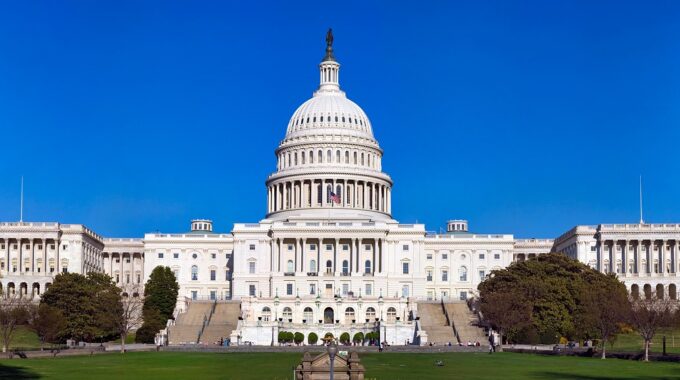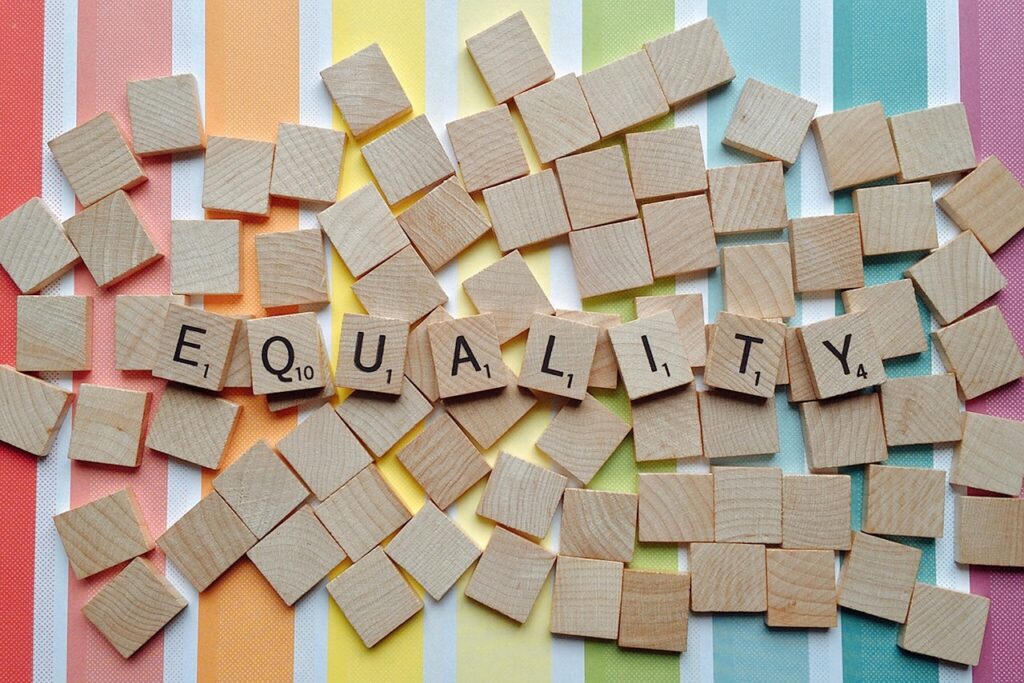Myth: Trickle Down Economics Works Since the days of Ronald Reagan, many have promoted the…

LGBTQ+ Rights and Privileges in 2023
Clearing up state-made hurdles with barrier-breaking federal laws
2017-2022 marked a period of tremendous advancements in federal legislation supporting and advocating for LGBTQ+ rights.
- A 2017 Supreme Court ruling instructed states to assign same-sex couples and heterosexual couples the same parental rights.
- In 2020 the house passed the Equality Act, which would amend the Civil Rights Act to protect gay and transgender individuals from discrimination not only in the workplace but also when seeking housing, within public accommodations and in many other situations if passed into law.
- 2022’s Respect for Marriage Act recognizes same-sex and interracial marriages under federal law.
Even with these sweeping changes in support of equality and inclusiveness for all under the law, variability in state-level execution of these very protections has left LGBTQ+ individuals very much unprotected. For every landmark decision and change in the direction of ending discrimination, there are a dozen more state judicial rulings, and state legislative bills that are keen to “other” the LGBTQ+ population. These state-supported bans, bills, and laws work to build barriers and deny LGBTQ+ persons the same rights afforded to everyone else.
Not everyone is of a New York state of mind 
We live in a nation where states are free to implement and interpret federal legislation in their own time, in their own way. Citizens in dense, metropolitan areas can easily take for granted that progressive, inclusive thinking is a mainstay when it is not. L.A. and Manhattan mindsets are not the rule, but in comparison to the worldview in Arkansas, Oklahoma and Texas, they are the exception. With bans denying gender-affirming healthcare, bills attacking gender nonconforming and “don’t say gay” laws prohibiting the mention of gender identity in elementary schools, it is no surprise when queer persons struggle to bring their whole self to work every day.
Workplace discrimination still exists in 2023
Despite the 2020 Supreme Court decision prohibiting workplace discrimination on the basis of sexual orientation or gender identity, there is no societal consensus on the rights and protections guaranteed to queer people at work or in the community. As many as half of LGBTQ+ workers self-report being closeted at work potentially avoiding the application process discrimination, microaggressions and limited growth opportunities experienced by the other half of workers who are out. The workplace becomes a microcosm of the nation with well-meaning supporters not realizing the laws and rights and assumptions afforded to cis-gendered persons do not seamlessly apply to their queer co-workers.
This “othered” status brings with it barriers that heterosexual persons do not encounter or generally have to consider. When measuring diversity, equity and inclusion in your organization, make sure you measure how sexual orientation and gender identity matter so you can develop strategies that address employee needs.
Barriers to LGBTQ+ progress are everywhere
Outside of the workplace, this “othered” status continues within judgments and legislation designed to create barriers to LGBTQ+ progress in many areas including healthcare, student athletics, public performance venues, public education and parental rights.
Trans adults are treated as minors
Young adults as old as 26 would be denied gender-affirming healthcare procedures through an Oklahoma proposal that would also deny Medicare coverage for transition-related procedures. 18 is the age of adulthood in most states, with 21 being widely acknowledged as an adult in the U.S. Meanwhile young adult trans individuals in Oklahoma risk being refused hormone therapies, and reassignment procedures in their home state should the bill pass. This is yet another example of the concerns of LGBTQ+ persons being “othered” rather than being granted the same consideration, accessibility and permissions as any other adult’s healthcare concerns.
Transgender youth are trapped on the sidelines.
In recent years 18 states have banned transgender youth participation in team sports for teams aligned with their gender identity and not their sex at birth. The difference between an inclusive and motivating high school sports experience for these kids literally comes down to state lines.
Drag Brunch is canceled
A Tennessee bill seeks to make public drag performances a misdemeanor, allegedly as a means to protect children from public displays of sexually explicit content. Similarly, a bill in Arizona requires all drag performance spaces to be zoned as adult performance venues. These bills are written in such broad-based language that they threaten the safety of anyone gender non-conforming. The bill defines a drag performer in part as “a person who dresses in clothing and uses makeup and other physical markers opposite of the person’s gender at birth to exaggerate gender signifiers and roles…” This broad definition could apply to a drag performer but also a gender-fluid individual or transgender person. Bills of this nature invite violence, harassment and identity shaming of any queer person minding their business in a public space.
Don’t say gay spoils the school day
Florida has made waves with the parental rights in education law (commonly known as the “don’t say gay bill”). Any mention of gender identity or sexual orientation is prohibited in K-3 classrooms, leaving many children of LGBTQ+ families, and LGBTQ+ teachers feeling unsafe and disrespected. As a result, Florida has seen thousands of teaching positions unfilled and many residents considering relocating in search of the respect and safety they’re denied in Florida.
Three is a family, Four is a crowd
In February 2023 an Oklahoma lesbian woman lost custody of her son to his biological parents, who jointly petitioned for custody of the child. The situation is a unique one, where all three parties identify as LGBTQ+ but in the absence of legally established parental rights (adoption), the non-biological mother (previously married to the biological mother) lost to state law. Most states allow the assumption of parentage of children born within marriage even when sperm banks or egg donors are used. Oklahoma is not “most states’ and lacks adequate case law to support this popular assumption. The Oklahoma judge interpreted federal and state law choosing to assign all parents the same rights on the basis of biology, and not marital status. All three parties; two married (now divorced) women and their `known sperm donor” were regarded as the child’s parents. For custody purposes, they represented a family unit not recognized by Oklahoma law. And in the face of divorce, the non-biological mother was “othered,” and denied custody moving forward for lack of a precedent.
 The Equality Act: Real change just within reach
The Equality Act: Real change just within reach
Broad strokes of change abound at the federal level, but the implementation and internalization of change do not happen overnight. The passing of legislation like the Equality Act will provide national law prohibiting LGBTQ+ employment discrimination, healthcare discrimination, public space discrimination and “othering” as it pertains to eligibility for federally funded programs. Many of the anti-LGBTQ+ state-sponsored bills and laws detailed above will hold no weight against federal policy if passed.
Your Work Culture: Where you can make a real difference
Unfortunately, discrimination continues in the community and in the workplace as most people are not fully considering the multi-dimensional identities of their LGBTQ counterparts, leading to generalizations, assumptions and insensitive behavior.
A work culture that strives to create inclusive spaces that give voice and audience to anyone who has ever felt “othered,” is the goal. A world that is committed to equity and inclusion for each and every one of us is the dream. Many of us are making great strides toward these goals, but as a nation, we are far from living the dream.
Some of the ways you can support your LGBTQ+ employees include:
- Updating your policies to ensure they are inclusive of and address employee needs
- Leadership, communications, and policies should all use inclusive language
- Include LGBTQ+ cultural competency training (here is an excellent PDF example of an HRC training for EMTs)
- Encourage employees to use pronouns in their email signature lines
Read more about LGBTQ+ Equity and Inclusion: A Work in Progress and continue working towards building an inclusive culture where we can all feel valued.
Sources:
- ABC News, “House Passes Historic Marriage Equality Bill,” Peller & Hutzler, December 2022.
- Center for American Progress, “What You Need to Know About the Equality Act,” Santos, Medina & Gruberg, March 2021.
- Footwear News, “Pride Month: How Companies Are Bringing the LGBTQ Community Into the DEI Discussion,” Nikara Johns, June 2021.
- NBC News, “With over 100 anti-LGBTQ bills before state legislatures in 2023 so far, activists say they’re ‘fired up’,” Jo Yurcaba, January 2023.
- The Oklahoman, “OKC woman loses custody battle to ex-wife and the child’s sperm-donor biological father,” Jana Hayes, February 2023.
- Work Shield, “What DEI in the Workplace Means to LGBTQ Employees,” Jared Pope, June 2021.



